What is the better choice to get opensource SPICE simulator on Linux? I am fan of Proteus (Windows) is there any alternative like it?
5 Answers
I'd say either ngspice with gspiceui (part of gEDA I believe) or LTSpice with wine as Renan has already mentioned.
Here's a screenshot of ngspice on KDE (with one of the graphical addon packages like nutmeg):

I have a linux box and I use the second option (rarely, since I'm mostly on my Windows laptop), simply because I'm used to LTSpice.
There are also many others, including some interesting variants like eispice, which claims to be the only open source SPICE that provides native IBIS model support (this may be pretty useful for many high speed digital designers on a limited budget - I will certainly be checking it out). It was aimed at PCB signal integrity simulation initially, but has expanded to include more general purpose features.
- 105
- 5
- 54,990
- 3
- 76
- 147
-
@gnucap: September 20, 2006 - Version 0.35 released => doesn't seem to be in active development. – jippie Jan 16 '13 at 19:01
-
@jippie - okay thanks, I'll remove it then. I haven't used it but a link I was on mentioned it so I added it too (should have checked it's status first) I know ngsice to be okay and active as I have used this recently. – Oli Glaser Jan 16 '13 at 19:54
-
Ubuntu still pulls gnucap as a dependency when installing ngspice. I just think it is a bad choice as a starting point. – jippie Jan 16 '13 at 20:00
-
@OliGlaser What is your experience with results comparison with LTSpice and ngspice? Are the deltas too much apart? Thanks. – Chetan Bhargava Jul 20 '15 at 06:14
-
Is it possible to execute the circuit like Proteus does? – Roby Sottini Oct 03 '17 at 13:45
SPICE was developed under, is and always has been UNIX based with most instances of the software also being actively run under Unix. There are very few windows variants in comparison. As a result there is a many different flavors of spice out there and many that are FOSS. gEDA, XSpice etc. A quick search under EDA on freecode (the old Fresh meat repository) shows 16 instances, but not all are free. Another search under source forge shows GNUspice and ngSpice.
There is even a FEL spin (Fedora Electronics Lab) that is slightly out of date and has many, many EDA tools bundled into one focused version.
- 29,982
- 10
- 63
- 110
-
3Just a historical niggle, but I believe the first versions of SPICE could not have been developed on Unix. According to Wikipedia, SPICE1 was first presented by Berkeley researchers in 1973, but in the article on BSD Unix, it says "The first Unix system at Berkeley was a PDP-11 installed in 1974". So the earliest versions of SPICE actually predate the availability of Unix at Berkeley. – The Photon Jan 15 '13 at 16:52
-
1Good point, from a historical article in IEEE. SPICE 1 came from CANCER. Nagel developed SPICE I on a CDC 6400 mainframe (probably NOT UNIX) and released it on April12,1973. Spice 2 came out in 1975 (using vi and EMACS - so UNIX then) – placeholder Jan 15 '13 at 17:24
As far as I know, there isn't something like Proteus for Linux.
If you don't mind using Wine to run Windows applications in Linux and using a closed-source application, LTspice runs perfectly there (this is what I use, usually)
Otherwise, there's ngspice, for which Oli already has pointed to an ngspice GUI.
- 5,090
- 2
- 27
- 45
-
1+1 for LTSpice. In spite of being a windoze app, it is a *really* nice tool, and the main developer is a Linux advocate, so he makes sure that LTSpice runs well under wine. You can even run LTSpice in command line mode for batch circuit simulation if you want. – blondiepassesby Jan 06 '15 at 11:04
-
1
-
I spent some time getting to know QUCS, and then hit problems (things like transient simulator not working with switches), The response to people with problems with version 0.0.19 seems to be 'try 0.0.20', which is a pain to install under Ubuntu 20.04 because of Python 3(?). I persevered, but Transient Simulator still doesn't work for me. YMMV; mine certainly did. – brewmanz Jun 16 '21 at 04:57
